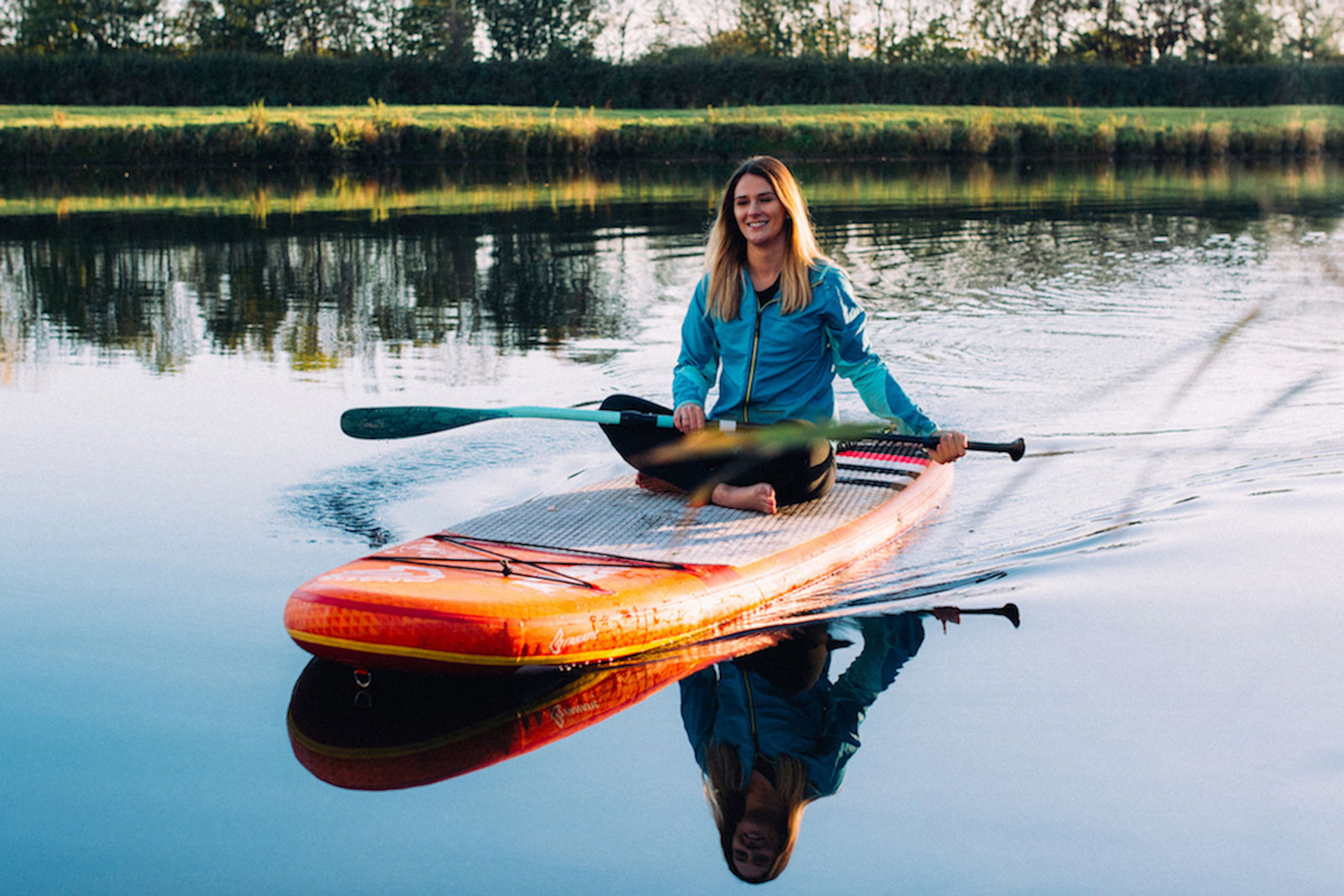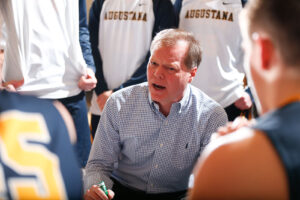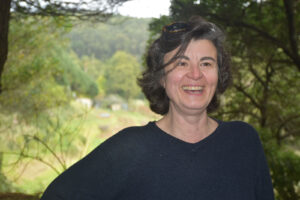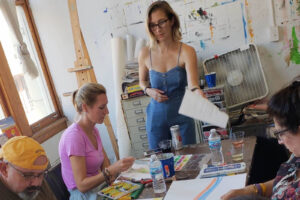“I don’t think I ever expected to hear those words,” says environmental activist Lizzie Carr. “I don’t know what I thought it would be, but certainly not cancer.”
Carr’s adult life, like many people her age, was just about to take off. After studying English literature at university, Carr went on to work in marketing for an agency. She planned on building a career and climbing the ladder. “I viewed my success by my salaries and my job titles and just kind of the way you’re conditioned to throughout life,” she says.
All of that came to an abrupt halt when she noticed a small lump on her throat. After taking six months off work to travel, the lump got bigger. And while it didn’t hurt and she showed no other symptoms, Carr remained concerned. After a lengthy testing process, she finally received the news: she had cancer.
To say her diagnosis came as a shock would be an understatement. With no history of cancer in her family, Carr says it was difficult for the news to sink in initially. “I think as soon as you hear the word cancer, it automatically [conjures] up negative images,” says Carr. “To a lot of people, it signifies death.” Carr was not unlike many other warriors and survivors. A general sense of fear permeated her treatment and, after going into remission a year later, long after. “You’re in this balance between being constantly grateful for your outcome and fearful of what might happen next,” Carr says.
One thing that helped Carr during and after her treatment was mindfulness and self-care. “You can never underestimate the power of breath,” Carr says. Another thing that helped Carr was a return to nature. After trying regular therapy, Carr went to stay with her father who lives on an island in England. After watching someone paddleboard in the bay, Carr rented a board at the local club and tried the activity herself.
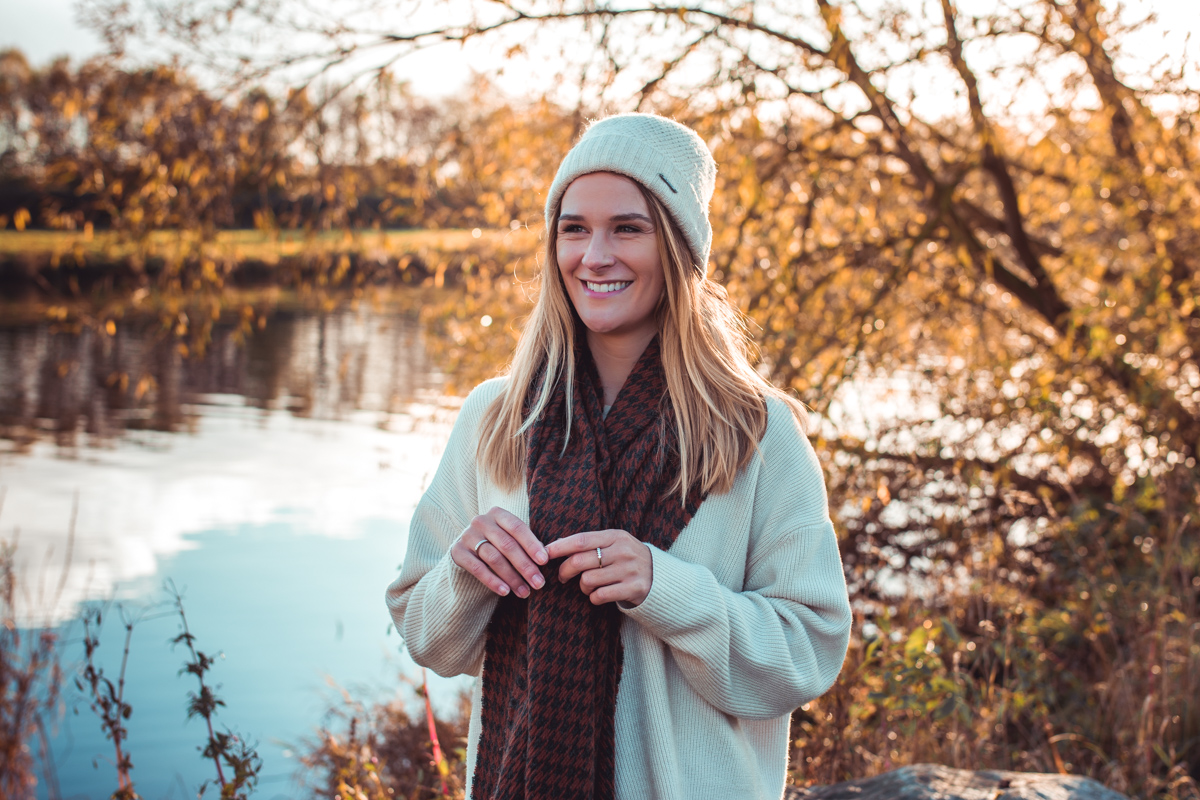
“It was like magic. I don’t know any other way of describing it. Just everything I needed was in that moment in the shape of a paddleboard,” Carr says. “It wasn’t just the physical impact. But what I didn’t expect was the mental and well-being side of it, and how that had such a positive impact on me when I needed it.”
Upon returning to London, Carr continued paddle boarding on evenings and weekends at her local club. However, the experience was less idyllic than her initial foray into the sport. Carr paddled past ducks and swans chewing on straws. The water was littered with plastic. Plastic bags often got caught in the fins under her board.
“It was just horrifying,” says Carr. “I was out on the waterways to restore my health and feel better, and it was compromising the experience, especially seeing the impact it had on the wildlife around me.”
The experience inspired her to turn her concern into a form of activism. In 2016, Carr paddleboarded the length of the English waterways, from the north to the south, around 400 miles. The journey took her 22 days, and Carr set a world record, becoming the first person to make the journey.
It was like magic […] Just everything I needed was in that moment in the shape of a paddleboard.
Many days she wanted to give up. She developed carpal tunnel syndrome and trigger finger. “I remember feeling quite overwhelmed somedays. Like I can’t do this,” says Carr. “But I knew I [couldn’t] give up. If I don’t do this, I can’t communicate the things I have to communicate, and all the data I’ve collected isn’t going to be robust because I’ve only done half of the journey.”
The “data” Carr refers to is the garbage she saw on her trip. Carr photographed every piece of garbage she saw, more than 2000 in total. As much as her experience was a personal odyssey, it also became an environmental one.
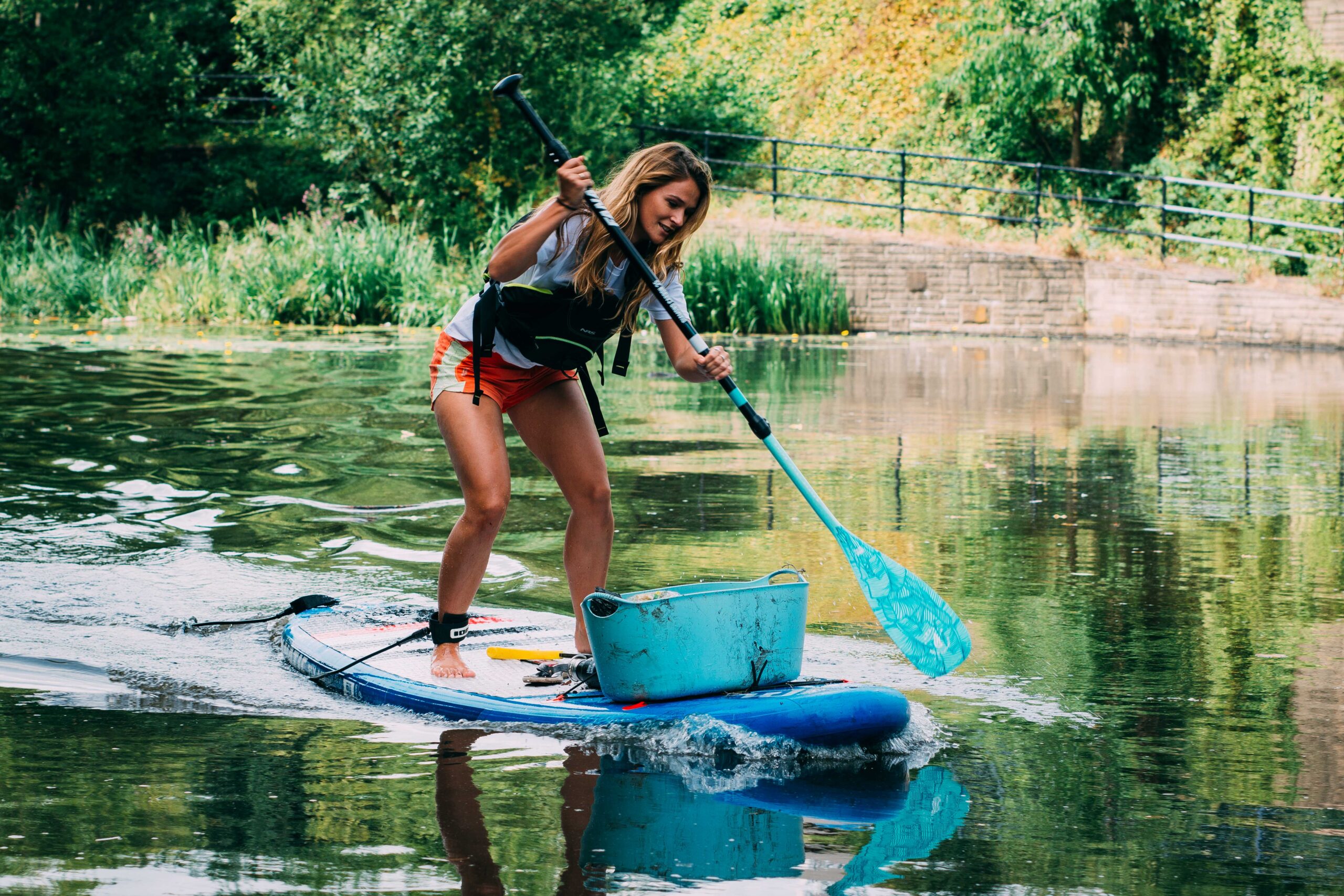
“I was just trying to find a way that I could use my voice in some way to contribute and spark conversation and spark some friction around it,” Carr begins. “By using adventure and my paddleboard and this long journey to highlight the problems and photograph them […], it meant I was able to show everybody in this single journey how much rubbish I actually saw.”
And her message reached the masses: “Within a few days to a week, I realized that [with] this one-woman crusade I’d set out on, there were so many people like me out there who cared, but they just needed a way to channel that.”
Soon after, Carr launched Plastic Patrol. The organization aims to “combat the plastic crisis by eliminating single-use plastic and developing sustainable alternatives.” They do this through global clean-up events, partnerships with other businesses and organizations, and their Plastic Patrol app, which logs data on pollution. Much like Carr’s record-breaking English waterway trip, the Plastic Patrol app encourages users to photograph pollution they spot in nature, count and categorize the garbage, and share their impact on social media. This past year, the group reached their goal of logging one million pieces for the one million marine animals that die from plastic pollution every year in their #OneforOne campaign.
And earlier this year, the group released its impact report, which used data logged over the last three years. According to the report, the public recorded a total of 1065 brands. The most registered types of litter included plastic packaging, plastic bottles, polystyrene, cigarette butts, and plastic bags. Plastic made up 83 percent of the overall litter recorded. Based on their findings, the group recommends a nationwide ban on plastic bags, and a reformed and transparent regulatory framework, among other things.
The group plans to continue releasing reports over the next five years as the fight for a cleaner environment will likely continue. Carr hopes their efforts will make experiencing nature as beneficial for others as it was for her in her healing journey.
“I think we spend so much of our lives thinking about the future, reflecting on the past, or eyeballing social media that we’re very rarely focused on what’s going on around us,” Carr says. “But when you’re in nature […] and the only sound you hear is the paddle going in and out of the water and the soundtrack of the wildlife, you end up in this relaxing trance. Nothing can compare to the feeling of being outside or being in nature can give. It’s like therapy.”

